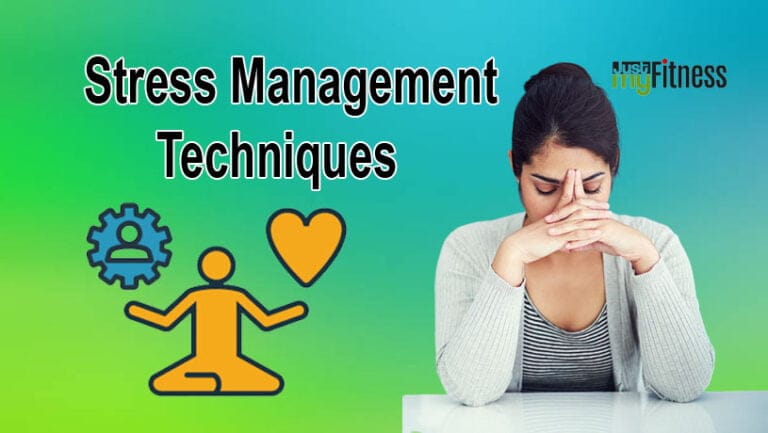The pressures of a busy lifestyle can take a toll on mental and physical well-being, making it imperative to explore strategies that not only mitigate stress but also enhance overall quality of life. As you juggle work, family, social commitments, and personal pursuits, stress can easily sneak its way into your life. The key to maintaining a healthy and balanced life lies in effective stress management techniques. This article explains a comprehensive array of proven stress management techniques tailored to suit the dynamics of a hectic routine. Individuals can equip themselves with the tools necessary to navigate the challenges of modern life with resilience and tranquillity by exploring these strategies.
What Causes Stress?
Workload and Deadlines
The pressure to meet tight deadlines and manage a heavy workload can trigger significant stress, especially in today’s competitive and fast-paced professional landscape.
Financial Concerns
Money-related issues, such as debt, unexpected expenses, or unstable financial situations, can lead to chronic stress as individuals grapple with uncertainty and the fear of not meeting financial obligations.
Relationship Strain
Problems within personal relationships, whether with family, friends, or romantic partners, can generate emotional turmoil and stress, often resulting from conflicts, misunderstandings, or lack of communication.
Health Challenges
Physical health problems, chronic illnesses, or the apprehension about one’s health can contribute to stress, as individuals worry about their well-being, medical expenses, and the potential impact on their daily lives.
Time Constraints
The relentless pressure to balance multiple responsibilities within limited time frames can lead to time-related stress. The constant juggling act between work, family, social commitments, and personal interests can be overwhelming.
Why is Stress Management Important for a Busy Lifestyle?
In a world that never seems to slow down, stress can take a toll on your overall health. From triggering physical ailments to impacting your emotional equilibrium, unmanaged stress can lead to burnout and reduced productivity. Recognizing the significance of stress management is the first step toward achieving a harmonious and fulfilling life.
The Mind-Body Connection
Believe that your mental state affects your physical health can be eye-opening. Stress can contribute to conditions like headaches, digestive issues, and even heart problems. By managing stress effectively, you’re not only safeguarding your mental well-being but also nurturing your body.
How can you Identify Strengths in your Busy Life?
Pinpointing the sources of your stress is crucial. It allows you to address the root causes and implement tailored strategies. Whether it’s work-related deadlines, familial responsibilities, or financial concerns, acknowledging these stressors empowers you to take charge.
Keeping a Stress Journal
Maintaining a stress journal can help you uncover patterns and triggers. Document your feelings, situations, and physical sensations when stress arises. This practice can provide valuable insights into the specific areas you need to tackle.
Effective Time Management Techniques
Time management goes hand in hand with stress management. Efficiently allocating your time can lead to increased productivity, reduced stress, and more room for relaxation and self-care.
The Pomodoro Technique
Divide your work into focused intervals, typically 25 minutes long, followed by a short break. This method capitalizes on your brain’s ability to concentrate for a specific duration, enhancing productivity and preventing burnout.
Prioritisation and To-Do Lists
Create a list of tasks, placing the most important ones at the top. Tackling high-priority items first ensures that critical responsibilities are handled, giving you a sense of accomplishment and reducing stress.
How does Mindfulness Combat Stress in a Busy Lifestyle?
Mindfulness involves staying fully present in the moment, which can significantly alleviate stress. Amid a hectic schedule, incorporating mindfulness practices can provide clarity and calmness.
Meditation and Breathing Exercises
Set aside a few minutes daily to meditate or practice deep breathing. These techniques activate the relaxation response, mitigating the effects of stress hormones and promoting a sense of tranquility.
Mindful Approaches to Everyday Tasks
Engage your senses while performing routine activities. Whether it’s savouring your morning coffee or appreciating the texture of a fabric, mindful engagement can anchor you to the present and reduce stress-inducing rumination.
Nurturing Relationships Contribute to Stress Management
Strong social connections act as a buffer against stress. Cultivating meaningful relationships provides emotional support and a sense of belonging, even amidst a bustling life.
Quality Over Quantity
Focus on nurturing a few deep relationships rather than spreading yourself thin. Meaningful connections offer understanding, empathy, and an outlet to share your feelings and experiences.
Setting Boundaries
Boundaries are essential for maintaining healthy relationships. Politely but firmly communicate your limits to prevent feelings of overwhelm and resentment.
Role of Physical Activity
Regular exercise isn’t just beneficial for your body; it’s also a powerful stress management tool. Engaging in physical activity releases endorphins, the body’s natural stress relievers.

Find an Activity You Enjoy
Whether it’s jogging, dancing, or practicing yoga, choose an activity that resonates with you. Enjoyment increases the likelihood of sticking to your routine, reaping long-term stress-reduction benefits.
Integrating Movement into Daily Life
Incorporate movement into your busy schedule, such as taking the stairs, stretching during breaks, or going for a brisk walk. Small, consistent efforts can add up and make a significant impact on your stress levels.
Well-Balanced Lifestyle
Balancing various aspects of your life is essential for stress management. Neglecting self-care, work-life balance, or leisure can lead to heightened stress levels.
The Importance of Self-Care
Prioritize self-care activities that rejuvenate your mind and body. This could include reading, taking relaxing baths, engaging in hobbies, or simply spending quiet moments in contemplation.
Creating Work-Life Boundaries
Strive to maintain a clear distinction between work and personal time. Set specific hours for work-related tasks and honor your time to prevent burnout.
Leisure and Hobbies
Participate in activities that bring you joy. Engaging in hobbies or leisure pursuits provides a sense of fulfillment outside of your professional responsibilities.
Conclusion
Integrating effective stress management practices into the daily rhythm of a hectic lifestyle isn’t merely a privilege; it’s an essential component of sustaining one’s overall well-being and ensuring long-term success. The path to conquering stress is unique to each individual and necessitates a blend of self-awareness and the implementation of appropriate strategies. Through the practice of mindfulness, adept time management, regular physical activity, relaxation techniques, and the nurturing of strong social connections, individuals can fortify themselves against the eroding impact of stress. It’s crucial to understand that a bustling existence doesn’t have to equate to an overwhelmed mind.


